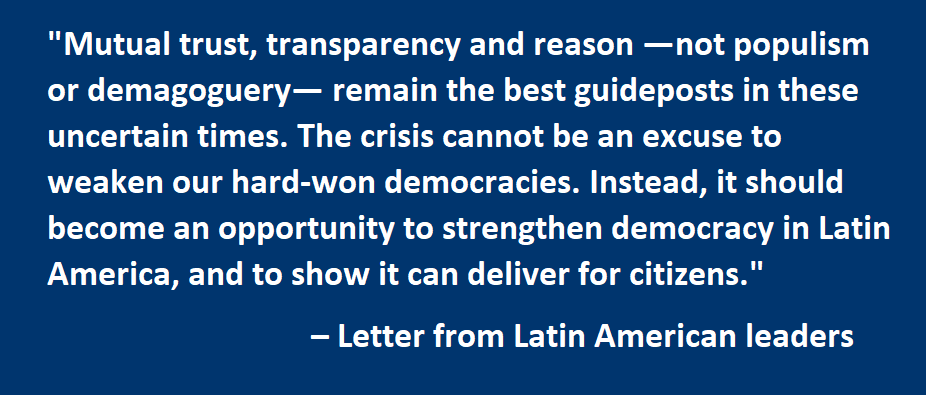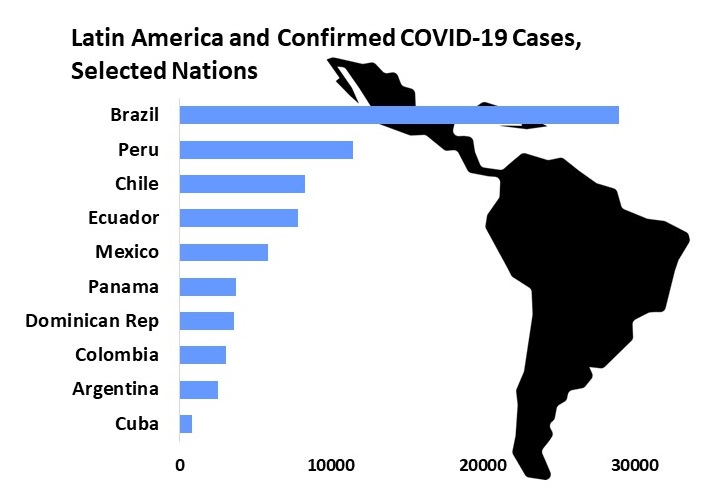COVID-19: A View From Latin America
COVID-19: A View From Latin America

Read the letter from Latin American leaders urging cooperation on COVID-19.;
The letter was signed by
Fernando Henrique Cardoso, former president of Brazil;
Ricardo Lagos, former president of Chile;
Juan Manuel Santos, former president of Colombia;
Ernesto Zedillo Ponce de León, former president of Mexico, director of the Center for the Study of Globalization at Yale University;
Mauricio Cárdenas, former minister of finance of Colombia and with the Center on Global Energy Policy, SIPA, Columbia University;
Roberto Chang, professor of economics, Rutgers University;

(Source: ncov2019.live and PinClipArt)
José De Gregorio, former economic and energy minister and central bank president, dean of the Economic and Business School, Universidad de Chile;
Ilan Goldfajn, former president of the Central Bank of Brazil and director and founder, Centro de Debates de Politicas Publicas;
Ricardo Hausmann, former planning minister of Venezuela and professor, Kennedy School of Government, Harvard University;
Eduardo Levy Yeyati, dean, School of Government, Universidad Torcuato Di Tella;
Federico Sturzenegger, former central bank president of Argentina and professor, Universidad de San Andrés;
Rodrigo Valdés, former finance minister of Chile, now with the School of Government, Catholic University of Chile;
Andrés Velasco, former finance Minister of Chile (2006-2010) and dean, School of Public Policy, London School of Economics.